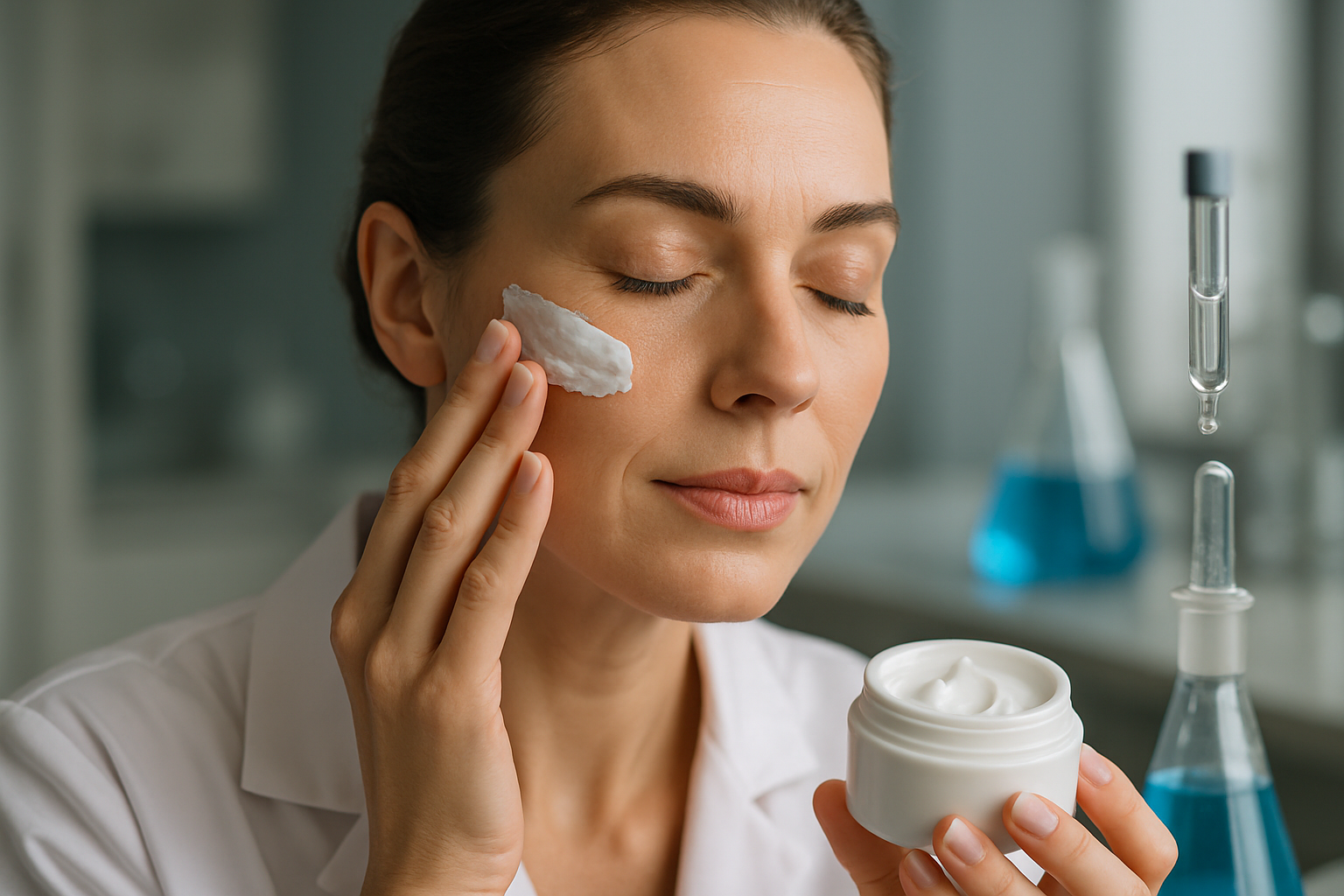Bioactive Peptides: The Next Frontier in Skincare
In the ever-evolving world of beauty and skincare, a revolutionary ingredient is taking center stage: bioactive peptides. These powerful molecules are reshaping our approach to anti-aging and skin health, offering targeted solutions that work at the cellular level. As consumers become more discerning and science-driven in their skincare choices, bioactive peptides are emerging as a game-changing addition to formulations. This cutting-edge technology promises to deliver unprecedented results, addressing everything from fine lines and wrinkles to skin firmness and hydration. Let's delve into the fascinating world of bioactive peptides and explore how they're set to transform the skincare industry in the coming years.

The history of peptides in skincare dates back to the 1970s when researchers first identified the potential of certain peptides to stimulate collagen production. However, it wasn’t until recent years that advances in biotechnology allowed for the development of more sophisticated and targeted bioactive peptides.
Today, scientists can create custom peptides designed to address specific skin issues. For example, some peptides mimic the action of growth factors, stimulating collagen and elastin production. Others work as neurotransmitter inhibitors, helping to relax facial muscles and reduce the appearance of expression lines.
Types of Bioactive Peptides and Their Functions
There are several categories of bioactive peptides used in skincare, each with unique properties and benefits:
-
Signal peptides: These peptides stimulate fibroblasts to produce more collagen, elastin, and other proteins essential for skin structure.
-
Carrier peptides: They help deliver trace elements like copper and magnesium to the skin, which are necessary for various enzymatic processes and collagen synthesis.
-
Enzyme inhibitor peptides: These work by blocking the enzymes that break down collagen and other important skin proteins.
-
Neurotransmitter inhibitor peptides: Often referred to as “Botox-like” peptides, they help reduce muscle contractions that lead to expression lines.
-
Antimicrobial peptides: These peptides have natural antibiotic properties and can help protect the skin from harmful bacteria.
The diversity of bioactive peptides allows for highly customized skincare solutions, targeting multiple concerns simultaneously.
Incorporation into Skincare Products
The integration of bioactive peptides into skincare products requires careful formulation to ensure their stability and efficacy. Peptides are typically incorporated into serums, creams, and masks, where they can be delivered in higher concentrations.
One of the challenges in formulating with peptides is their molecular size. While smaller than proteins, peptides can still have difficulty penetrating the skin barrier. To address this, cosmetic chemists are exploring innovative delivery systems, such as liposomes and nanoparticles, to enhance peptide penetration and effectiveness.
Another consideration is the pH of the product, as peptides can be sensitive to extreme pH levels. Formulations must be carefully balanced to maintain the integrity and activity of the peptides while ensuring the product remains stable and pleasant to use.
Clinical Evidence and Efficacy
As the popularity of bioactive peptides grows, so does the body of scientific research supporting their efficacy. Numerous clinical studies have demonstrated the potential of various peptides in improving skin appearance and function.
For example, a study published in the International Journal of Cosmetic Science found that a specific signal peptide increased collagen production in human dermal fibroblasts by up to 350%. Another study in the Journal of Cosmetic Dermatology showed that a neurotransmitter inhibitor peptide reduced wrinkle depth by up to 30% after just four weeks of use.
While these results are promising, it’s important to note that not all peptides are created equal. The efficacy of a peptide-based product depends on various factors, including the specific peptides used, their concentration, and the overall formulation of the product.
The Future of Bioactive Peptides in Skincare
As research in this field continues to advance, we can expect to see even more innovative applications of bioactive peptides in skincare. Some exciting developments on the horizon include:
-
Personalized peptide formulations: With advancements in genetic testing and AI, it may soon be possible to create custom peptide blends tailored to an individual’s specific skin needs and genetic profile.
-
Combination therapies: Researchers are exploring how bioactive peptides can be combined with other active ingredients, such as retinoids or growth factors, to create synergistic effects and enhance overall efficacy.
-
Targeted delivery systems: New technologies are being developed to improve the delivery of peptides to specific layers of the skin, ensuring maximum efficacy and minimizing waste.
-
Expanded applications: While current research focuses primarily on anti-aging benefits, future studies may reveal additional applications for bioactive peptides, such as treating skin conditions like eczema or psoriasis.
Considerations and Limitations
While bioactive peptides show great promise, it’s important to approach them with a balanced perspective. Some considerations include:
-
Cost: Peptide-based products can be expensive due to the complexity of peptide synthesis and formulation.
-
Stability: Some peptides can be unstable and degrade quickly, requiring careful packaging and storage.
-
Allergic reactions: As with any skincare ingredient, some individuals may experience sensitivity or allergic reactions to certain peptides.
-
Regulatory challenges: As new peptides are developed, regulatory bodies will need to keep pace to ensure their safety and efficacy.
Despite these challenges, the potential benefits of bioactive peptides in skincare are too significant to ignore. As research continues and technology advances, we can expect to see these powerful molecules play an increasingly important role in the beauty and skincare industry.
In conclusion, bioactive peptides represent a exciting frontier in skincare, offering targeted, science-backed solutions for a wide range of skin concerns. As we continue to unravel the complexities of skin biology and peptide technology, the future of skincare looks brighter – and more youthful – than ever before.





